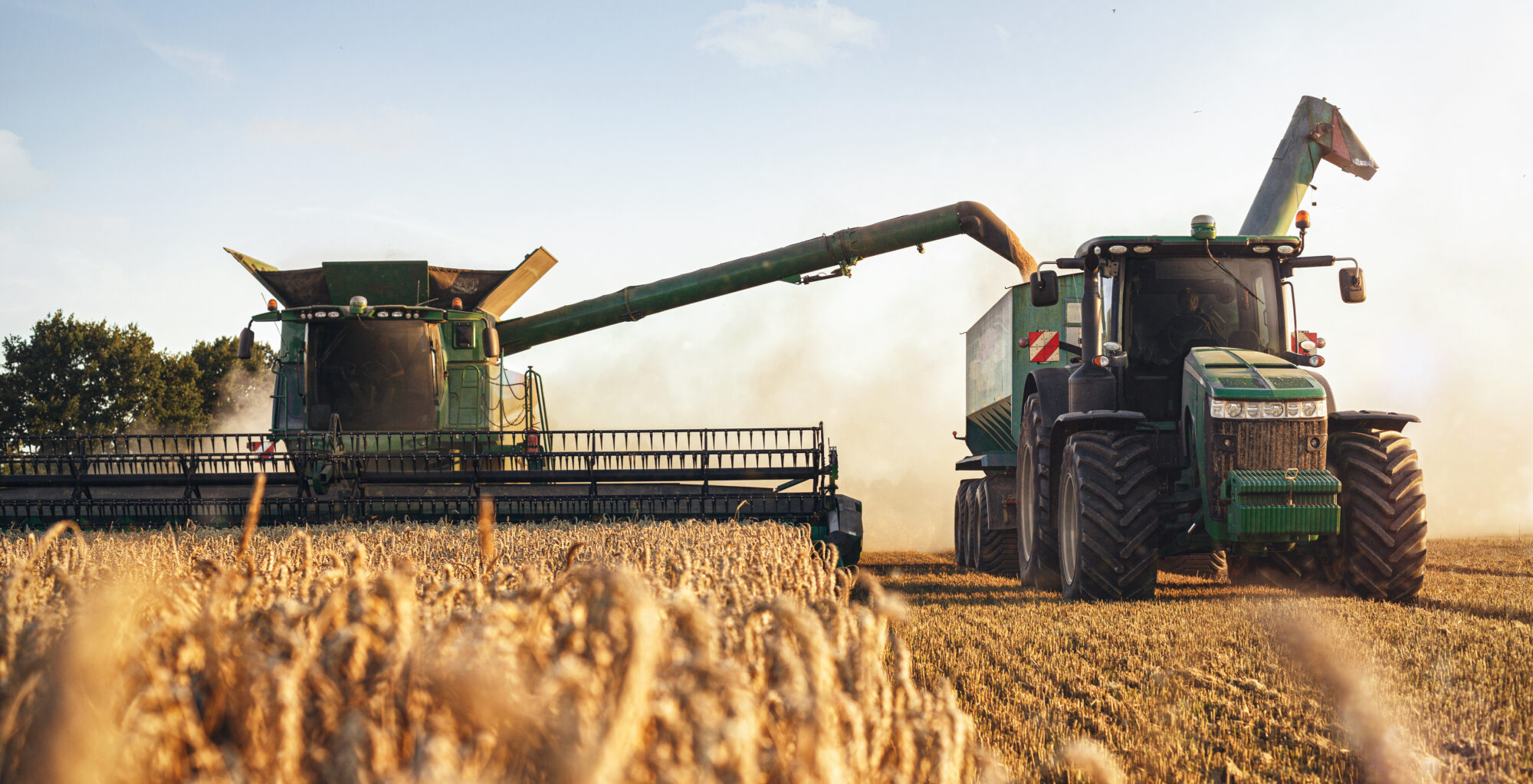Production

New Breeding Methods at a Crossroads
It will soon become clear whether plants developed through modern genomic breeding techniques will be allowed to be cultivated in European fields in the future. Switzerland in particular would be well advised to at least keep an eye on decisions made in Brussels in order not to fall behind.

Why Strict GMO Regulation Stifles Innovation
New breeding techniques such as CRISPR-Cas are considered key to developing resilient crops, stable yields and reducing the need for plant protection products. ETH professor Bruno Studer warns that overregulating these technologies strengthens precisely those large agricultural corporations that critics seek to curb, while excluding smaller breeders and start-ups from the market.
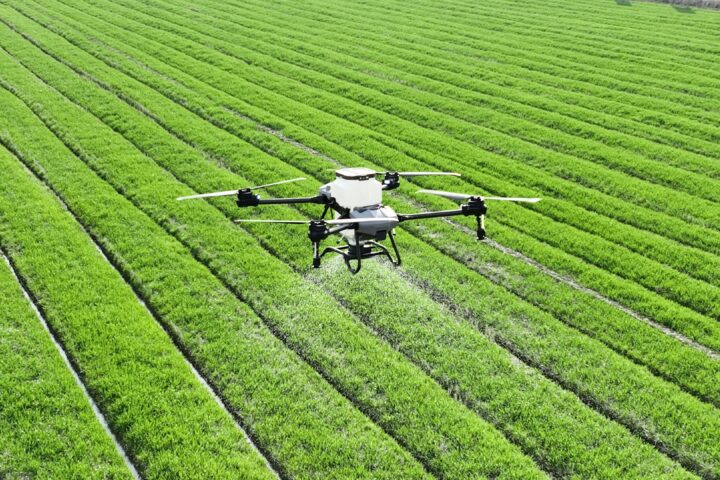
Ensuring Food Security Through Innovation
Agriculture stands at the centre of a global field of tension shaped by climate change, geopolitical crises and growing demand for food. Insights from the World Economic Forum in Davos show that the industry’s response lies in the intelligent combination of digital precision and biological progress.

A Superfood with Benefits and Challenges
Sweet lupin is Biovision’s “Superfood of the Year 2026.” It delivers high protein content, improves soils and supports biodiversity. Yet a closer look at agricultural practice shows that without breeding, crop protection and innovation, even this superfood remains a challenging crop.
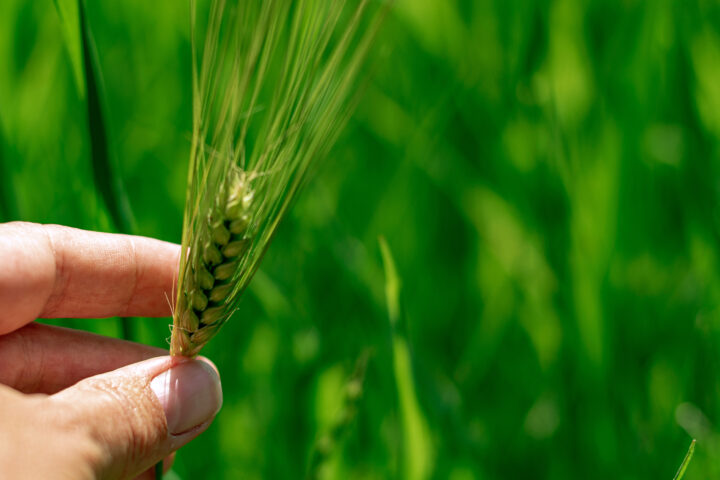
How German Experts View New Breeding Techniques
In hardly any other country is the idyllic image of organic farming cultivated in the public sphere as carefully as in Germany. Naturalness and rural authenticity are powerful mental refuges for many Germans. Against this backdrop, it is hardly surprising that resistance to new breeding techniques is strong – and that ignorance about the realities of organic farming sometimes appears almost deliberate.
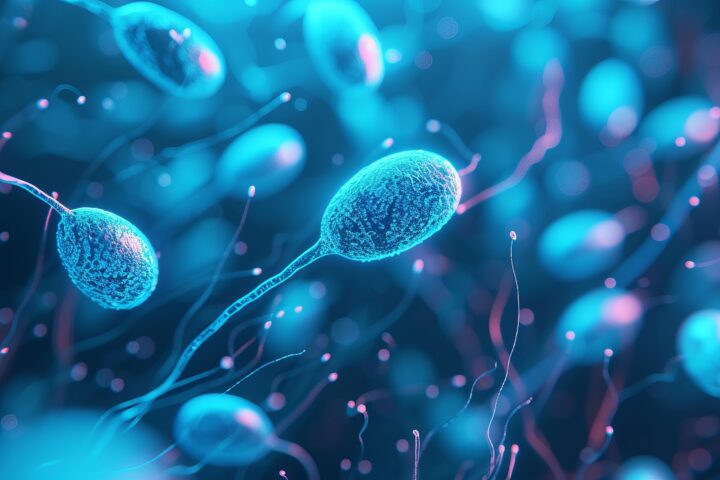
Sperm crisis with a question mark: what the Swiss study really shows – and what it does not
The state of Swiss semen appears worrying – unless you live slightly south of the city of Aarau. There, sperm quality among young men is reportedly the highest. The prime suspect is quickly identified: pesticides.
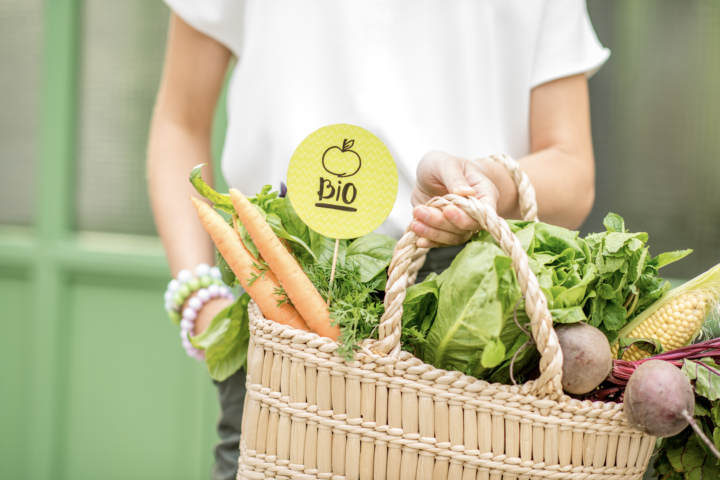
Old Stories Die Hard – when (organic) marketing blinds us to reality
An ORF documentary highlights what many organic enthusiasts don’t want to hear: mutagenesis is genetic engineering – and has been present in countless crop varieties for decades. Yet organic retailers like REWE and dm demand labelling requirements for new breeding techniques. Scientifically, this makes no sense.
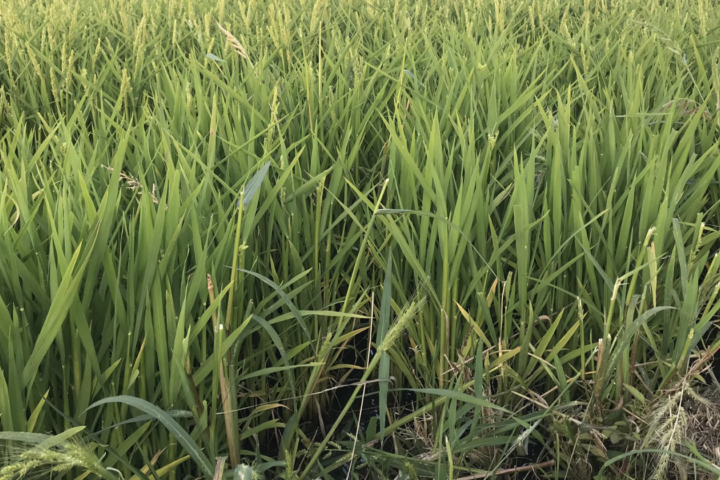
Sushi from Swiss Rice – Possible for a Few Years Now
Where once lamb’s lettuce and potatoes grew, a crop more commonly associated with Asia is now thriving: rice. What might sound like an exotic experiment has in some parts of Switzerland developed into a promising niche with a future.

Genetic scissors for the future – soon in Switzerland too?
Genome editing is seen as a promising way to make agriculture more sustainable and climate-resilient. But Switzerland is hesitant to approve it. A popular initiative even wants to ban it. But what can CRISPR really do?

Vegan alternatives thanks to genetic engineering
How can we feed a growing global population in a sustainable way? The answer increasingly lies in laboratories and genetic engineering. Whether it's lab-grown milk, vegan squid or farmed salmon – genetic engineering is everywhere. It's high time to dispel the old myths.

‘No genetic engineering’ is simply not an option!
For years, politicians and environmental organisations have been stirring up unnecessary fears about a technology that has been helping to conserve resources and protect the environment for decades, while improving the quality and tolerability of food and cosmetics. It is time to put an end to this consumer deception.

Less than 50 percent: How Switzerland is squandering its self-sufficiency
Swiss agriculture is under enormous pressure. Extreme weather conditions, pests and increasingly stringent regulations are putting producers under strain. As a result, self-sufficiency is falling dramatically, especially for plant-based foods. To ensure food security in Switzerland, effective plant protection products are urgently needed.

New problem: soft bugs, native pests discover fruit and vegetables
Soft bugs are spreading at lightning speed in fields and greenhouses in southern Germany. These pests are destroying fruit and vegetables and pushing agriculture to its limits. Effective plant protection products must be found urgently to safeguard harvests.

«The FOAG is abandoning productive agriculture»
Increasing pests, missing tools, growing bureaucracy – the farmers' criticism of the federal government is loud and clear. Swiss agriculture is at its limit, reports Blick. The demand: effective plant protection products are urgently needed again.

Voracious Moth on the Rise
Once again, a new pest is making life difficult for Swiss farmers. The migratory cotton bollworm has been spotted in Switzerland again in 2025. It feeds on beans, corn, and other crops – with devastating effects on harvests.

«The protection of cultures is no longer guaranteed»
Swiss agriculture is in a tight spot when it comes to crop protection. At the Swiss-Food Talk on July 1, 2025, three producer representatives described how bans, the lack of alternatives, and lengthy approval procedures are putting pressure on their crops.
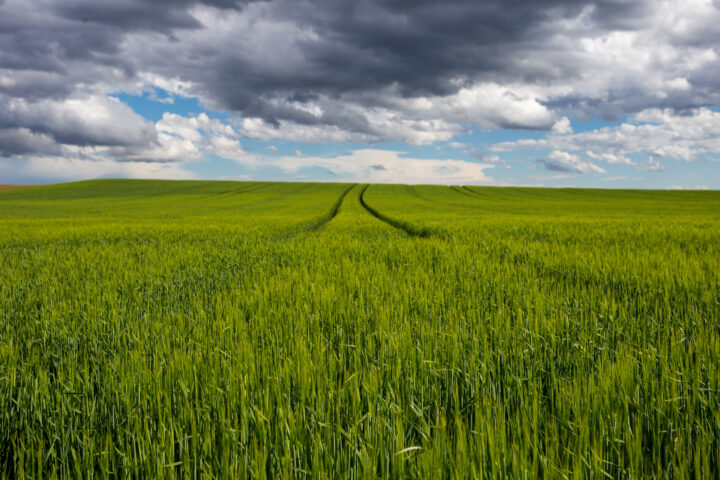
Mystery of Glyphosate’s Origins
For a long time, the answer seemed clear: agriculture was to blame. But new research turns this assumption on its head. A trail of clues leads from fields and garden fences deep into the wastewater system—and ends with a surprise.
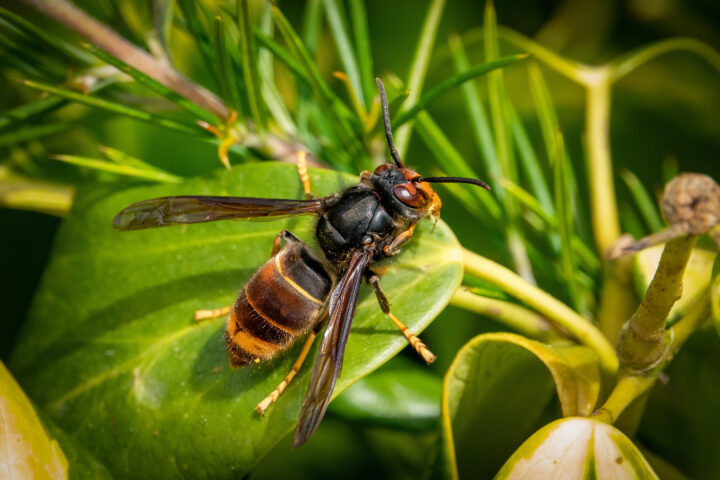
Three times more Asian hornets – biocides needed
The Asian hornet has been a threat to the native honeybee for several years. The situation continues to worsen. As new figures show, there were almost 4,000 sightings last year – a threefold increase in the number of Asian hornets. The pest is attacking biodiversity. Politicians are also alarmed.

Cultural heritage from the laboratory – is it time to rethink?
Would you drink laboratory-made coffee? A beverage that actually has nothing to do with coffee beans. Perhaps you would try it once? Or would you switch completely? These questions could soon be on your mind.

‘Highly processed’ is not a dirty word
The media repeatedly warns against ‘highly processed foods’. But are frozen pizzas and the like really that unhealthy? Not at all, according to nutritionist and professor emeritus Hannelore Daniel. Her appeal: stop badmouthing ready-made products across the board.

This insect poses an existential threat to German farmers
The reed glasswing cicada is spreading rapidly and threatening potatoes, sugar beets and other crops. Its bacterial pathogens cause massive crop losses. Germany is currently particularly affected, but there are also increasing signs of a growing threat in Switzerland.

How NZT makes popular varieties more resilient
New breeding technologies offer solutions – but they are simply being ignored in the current debate. Anyone who complains about the lack of flavour in strawberries must also be prepared to accept modern methods such as genome editing.

36 times the yield per square metre – thanks to indoor farming
Berlin-based start-up OrbiFarm is revolutionising the production of plant proteins and medicinal plants with indoor farming. The potential is enormous: yields are up to 36 times higher than in traditional agriculture – and that's without soil, weather or long transport routes.
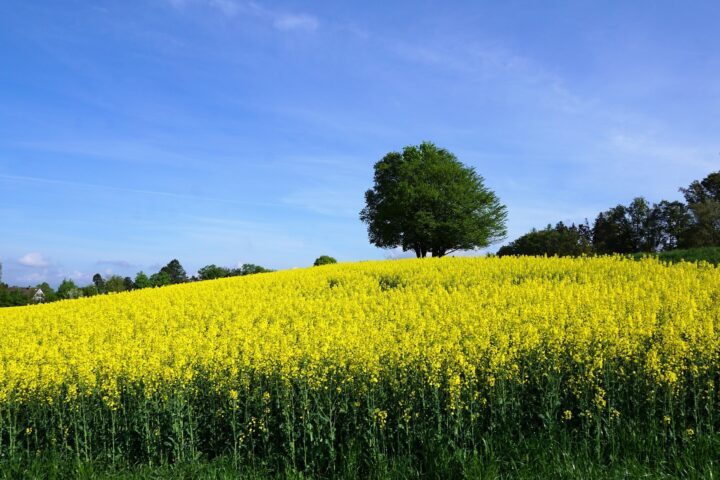
Swiss finish with a bitter aftertaste: the quiet demise of rapeseed cultivation
The Swiss finish in the authorisation process has not stopped at domestic rapeseed cultivation. Strict approval procedures and the lack of approved plant protection products are leading to a decline in acreage and lower yields. Experts warn that without viable alternatives, Swiss rapeseed production is nearing its end. And organic rapeseed is practically non-existent.
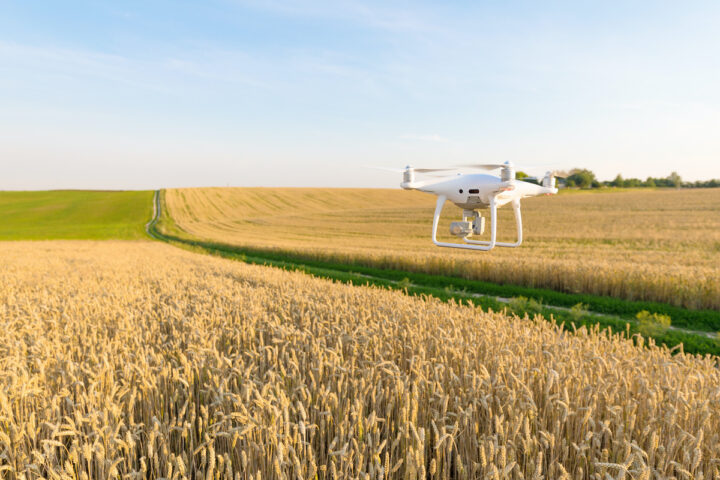
Why we need high-tech for tomorrow's agriculture
From genome editing to precision field spraying – innovations can strengthen the agriculture of tomorrow. They help to ensure that agricultural land can be used better. Crops are protected more efficiently. According to a survey by gfs.bern, the Swiss are very open to the use of modern technologies. This also applies to new breeding methods such as genome editing.

Olive oil is becoming a luxury product – and rapeseed is in a tight spot
Olive oil is now so expensive that supermarkets in southern Europe have to chain up their bottles. Poor harvests in Spain and Italy have caused prices to skyrocket. Rapeseed oil could be an alternative – but precisely its cultivation is coming under pressure.

Broccoli and cauliflower in short supply – is there a hunger gap coming?
Extreme weather and pests are threatening the supply of broccoli and cauliflower in Europe – and Switzerland. The shortage is mainly due to last year's devastating floods in Valencia. These popular vegetables could become scarce, especially in spring. However, the industry is already working on innovative solutions.

When the anti-genetic engineering lobby is in charge
A Tages-Anzeiger journalist gets caught in the threads of the anti-genetic engineering lobby and stumbles into unscientific territory. He writes about the fact that a politically controversial word is missing from a bill and embezzles a word himself when calling witnesses. A current example that shows how the choice of words can influence the perception of an issue.
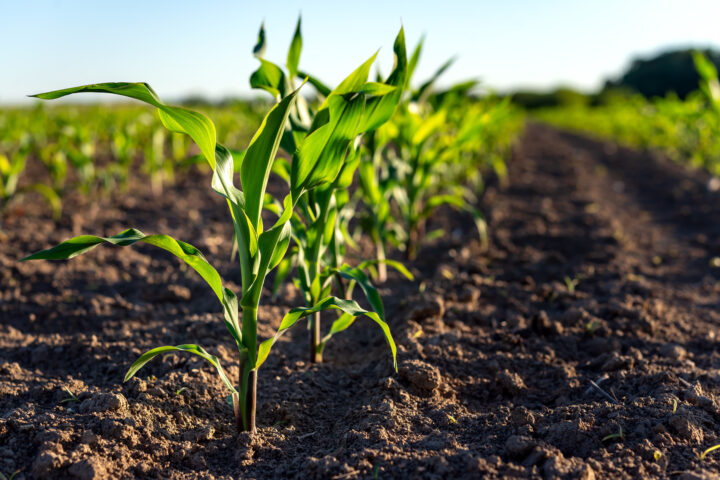
Climate protection must not jeopardise food security
Agriculture is increasingly under pressure to become climate-neutral. But how can this be achieved without jeopardising food security? In the agricultural policy podcast, Hannah von Ballmoos-Hofer, head of the energy division at the Swiss Farmers' Union, emphasises that climate protection is important, but must not come at the expense of food security.

Price explosion for coffee, cocoa and olive oil
The prices for cocoa, coffee and olive oil have reached new record levels in recent months. Consumers will be particularly affected in 2025 – they will feel the price increase massively. Innovations such as new breeding technologies or modern crop protection products could help – but for that, politicians would have to create the right framework conditions.
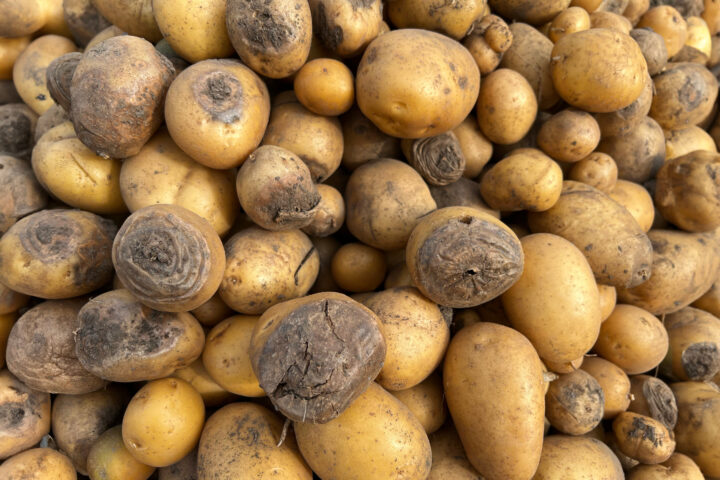
SRF Einstein on the potato crisis – more Steiner school than Einstein
The Swiss television channel SRF recently aired a one-sided report on the potato crisis in ‘Einstein’. The programme only mentioned climate change as a cause of the precarious situation and presented conventionally bred robust varieties as the only solution. Modern breeding technologies and crop protection were ignored.

Genetic engineering in agriculture – where is Rösti's openness to technology?
Genetic engineering in agriculture – where is Rösti's openness to technology?

Differing perceptions
While the increasing administrative burden is perceived as the main concern in the economy, parts of the population see it differently. Meanwhile, regulations are repeatedly misused as a means of exerting power in the competitive struggle – to the detriment of SMEs.

As if there was no time limit in this country
The EU has been stuck on the regulation of new breeding technologies for years. Switzerland is also missing out on developments. While innovative approaches are already being used commercially worldwide, Europe and Switzerland lack clear rules – with far-reaching consequences for local farmers, breeders and seed propagators, as well as for global trade.

Confidence in breakthrough technologies
A global survey of 13,000 people in 13 countries shows that people are fundamentally positive about new technologies. The study also reveals a clear correlation between knowledge and attitude: the more people know about a technology, the more positively they view it.

Domestic production as a blind spot
Switzerland's food security is increasingly under pressure: last year's disastrous wheat and potato harvests have led to an increasing dependence on imports. However, the report by the Federal Office for National Economic Supply (FONES) is largely silent on the precarious state of the domestic agricultural sector. The IG BauernUnternehmen (Farmers' Company) has therefore sharply criticised the federal government.
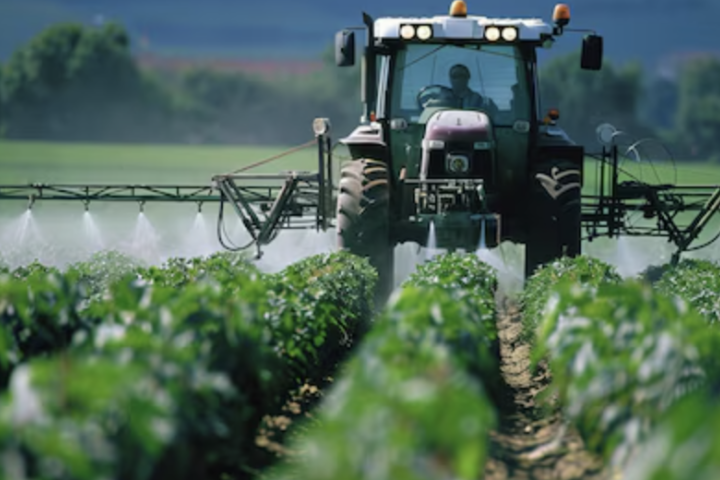
Why a lack of resources is to blame for the low yields in agroecology
Calls for transforming food systems have grown over the past several years. International governance organizations, such as the Food and Agriculture Organization (FAO), have issued many of these calls. Other calls have come from activist organizations, too numerous to list. A common theme from both the FAO and activists is that the current system is ‘broken’ and requires a complete rethink and overhaul.
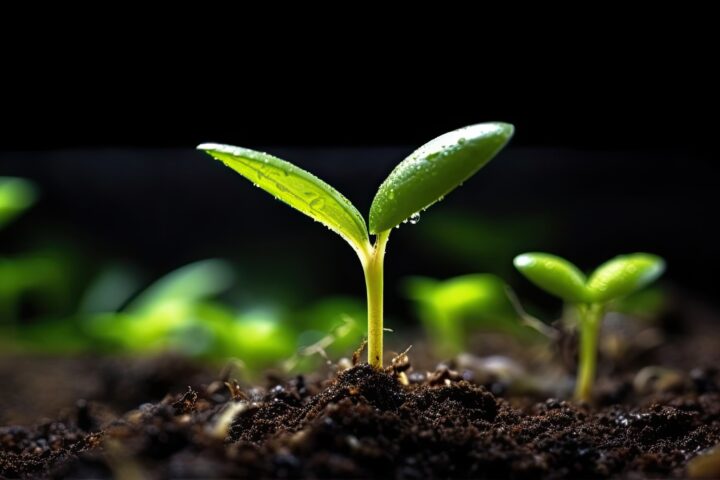
When surveys create fear
Surveys on technologies such as genetic engineering often focus on risks and spread panic instead of promoting a balanced discussion of the pros and cons. A striking example is the environmental indicator of the Federal Statistical Office. Social scientist Angela Bearth is highly critical of the survey.
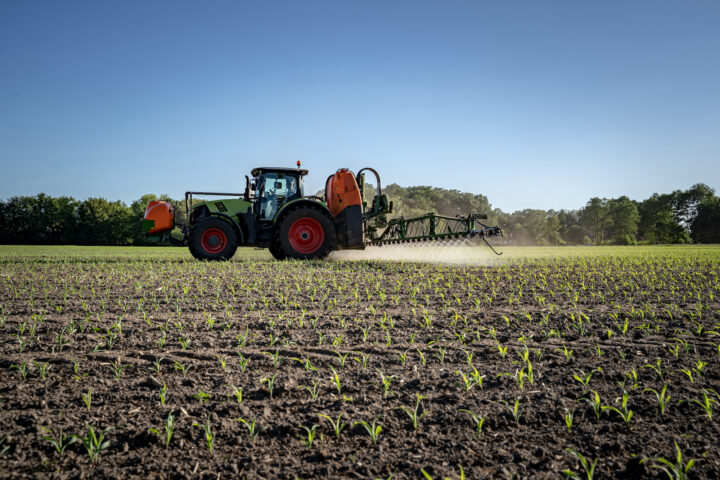
False study on crop protection poisoning influences political decisions
In recent years, the alarming news has been making the rounds that 385 million people suffer from crop protection poisoning every year. The claim comes from a study by critics of pesticides. It has been taken up and spread by numerous media and government institutions. The problem: the number is wrong. The study does not even allow for the conclusion, which is why the scientific publisher in question has since withdrawn the study. Nevertheless, it has influenced politics and continues to be cited frequently.

gfs survey confirms high acceptance of genome editing
A large majority of the Swiss population recognises the advantages of targeted plant breeding using genome editing. This is shown by a survey conducted by gfs.bern.
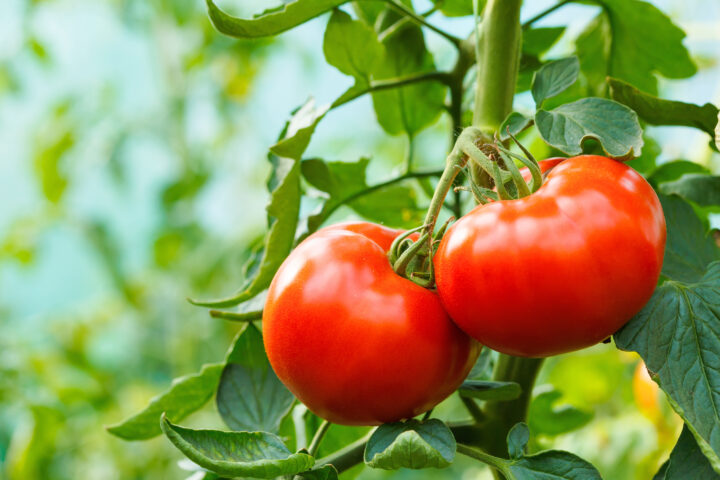
Imports instead of regionality: tomato virus destroys domestic production
Although tomatoes and peppers are among the most popular vegetables in Switzerland, most of them are imported. Extreme weather conditions and diseases are to blame. The first companies have already developed resistant tomato varieties – but the federal government remains sceptical of new technologies.
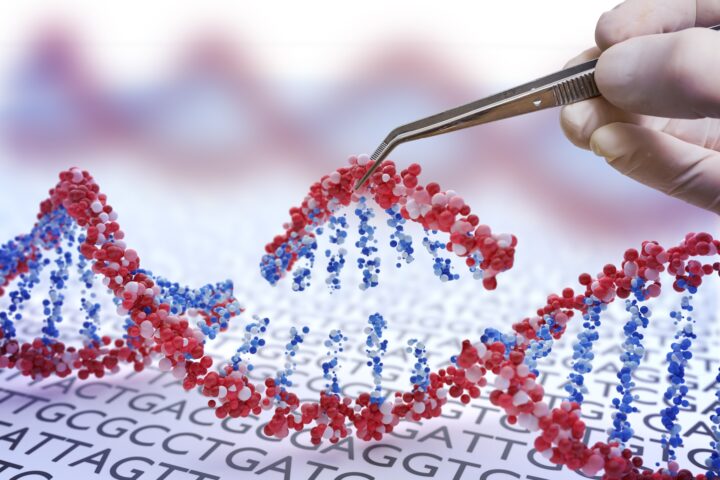
Rapid further development of the genetic scissors
CRISPR-Cas has been used worldwide since 2012 to modify genes in organisms with pinpoint accuracy. With the help of protein engineering and AI algorithms, researchers at the University of Zurich have now developed a new, more compact ‘genetic scissors’. This and similar variants will make it possible to edit genes ever more efficiently.
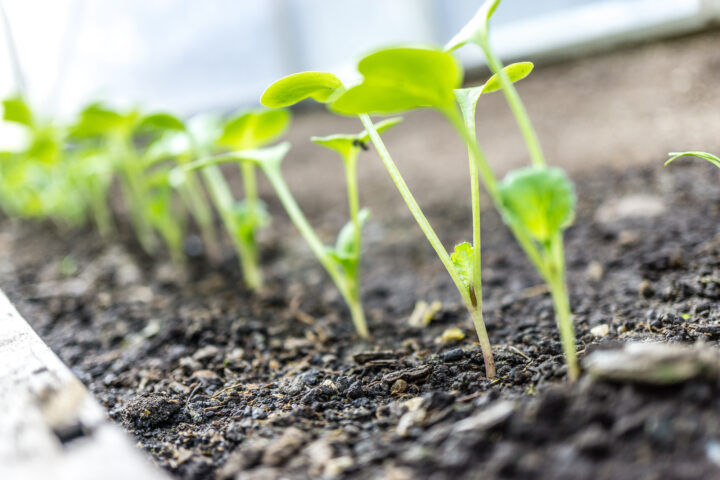
Migros and the opportunities of genome editing
The demand for new breeding technologies is growing. Experts see an urgent need for action in order to utilise technological progress without jeopardising safety. Companies such as Migros also recognise the importance of these developments and are addressing the opportunities and challenges they bring. Meanwhile, contrary to scientific findings, opponents are continuing to tell the same horror stories as they did 30 years ago.
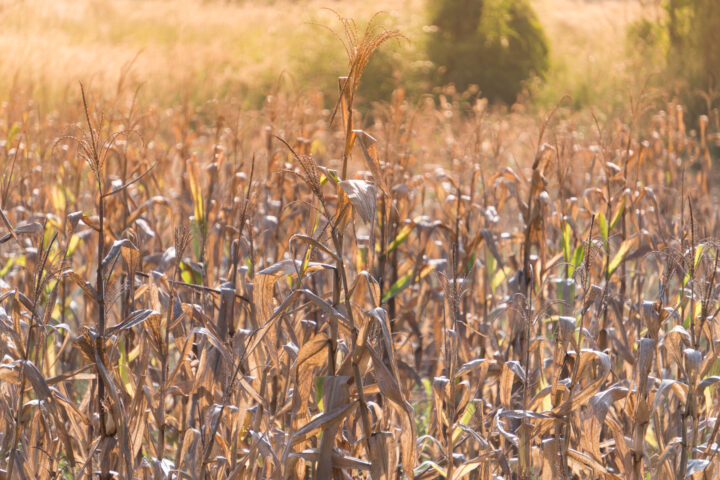
Catastrophic wheat harvest: Bad weather and restrictions on crop protection
The reports are piling up: 2024 will go down in history as the worst wheat harvest in decades. One of Switzerland's largest grain collection centres in Thalheim an der Thur suffers a historic loss.
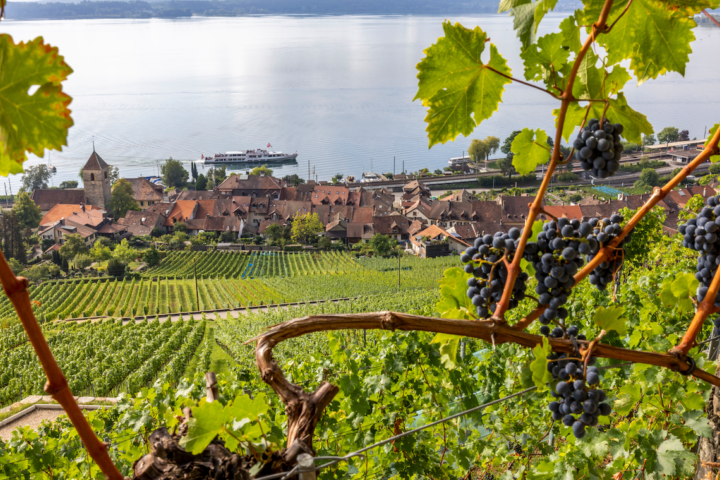
« The Bernese winegrowers spray and spray »
The heavy rainfall this summer has hit Bernese wine-makers hard and once again made it clear that crop protection is essential – especially in difficult growing years. The fact that fungal resistance also affects crop losses shows how precarious the situation is. Nevertheless, the federal government is hesitant when it comes to the authorisation of modern pesticides and new breeding technologies.

«Patents on technically produced plant traits make perfect sense»
Scienceindustries is sceptical about the federal government's plans to set up a clearing house for plant patents. The chosen approach is problematic and leads to legal uncertainty and additional work for patent holders. This is a shame, because Switzerland is actually the world patent champion.

Precarious situation for potato farmers
Potato farmers in Switzerland are sounding the alarm. Due to all the rain, late blight is spreading and destroying their harvest. There is talk of disastrous conditions or a "fateful year" for Swiss potatoes. 300 hectares of potato fields have already had to be abandoned - and more could follow. In the meantime, the federal government has also drawn the first conclusions.
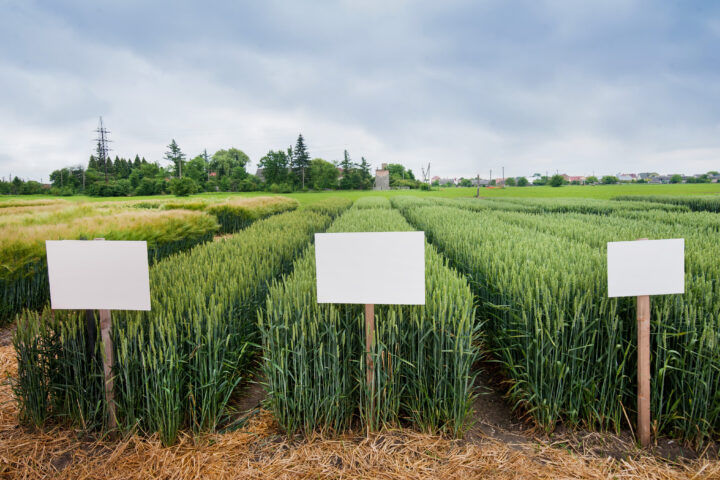
In plant breeding the music plays elsewhere
Switzerland is a centre of innovation, but unfortunately this promise has not yet been kept when it comes to the more modern methods of plant breeding. Openness would be a good thing for innovative Switzerland here too.

How can biodiversity be protected effectively?
Biodiversity is essential to life. And it is currently a very topical issue. The obligation to set aside areas of Swiss farmland for biodiversity promotion has clearly not achieved the desired objectives. Recently published studies indicate that species diversity remains under pressure. This is what prompted swiss-food, in the latest of its series of talks with three established experts, to focus on the tensions between biodiversity and agriculture and to shed some light on the reasons for these.

«Organic in this country, banned in the Philippines»
In the Philippines, Greenpeace has obtained a ban on Bt aubergines and golden rice. Incredibly, the same bacteria that the environmental organisation defames as dangerous there is being praised as organic in Switzerland.

«Thousands of children could die»
The ban on Golden Rice continues to make waves. More and more scientists are speaking out and denouncing the decision. The talk ranges from "alarming" to "catastrophe" to "dying children".

Clearing house for patent rights: Not in the interests of inventors and food security
On 22 May 2024, the Federal Council submitted a draft revision of patent law for consultation. A new clearing centre is planned to improve the transparency of patents in the field of plant breeding. While transparency is fundamentally positive, the chosen approach is problematic. Instead of the beneficiaries, it imposes new obligations on innovators and means that Switzerland is going it alone. This is a bad signal for innovative companies.

Tomato salad to combat vitamin D deficiency
Modern breeding methods can contribute to better health. For this reason, Bayer wants to use genome editing to breed more nutritious vegetables. In collaboration with the South Korean biotech company G+FLAS, tomato varieties are to be developed that are enriched with vitamin D3. Vitamin D deficiency is widespread and can lead to health problems such as rickets or osteoporosis.

Chlorothalonil – communication with cost consequences
Once upon a time there was a canton in Seldwyla. In order to better regulate access traffic to a larger town, the canton decided to install so-called "gatekeeper systems" on the access roads, i.e. traffic lights that stop private traffic and thus access to the town by means of red lights when traffic in the town itself comes to a standstill.

Science resists ban on GMO crops
The Supreme Court in the Philippines wants to stop the cultivation of genetically modified plants Golden Rice and Bt aubergine (Bacillus thuringiensis). This is anything but well received by the government and the scientific community: The ban could jeopardise the country's food security.
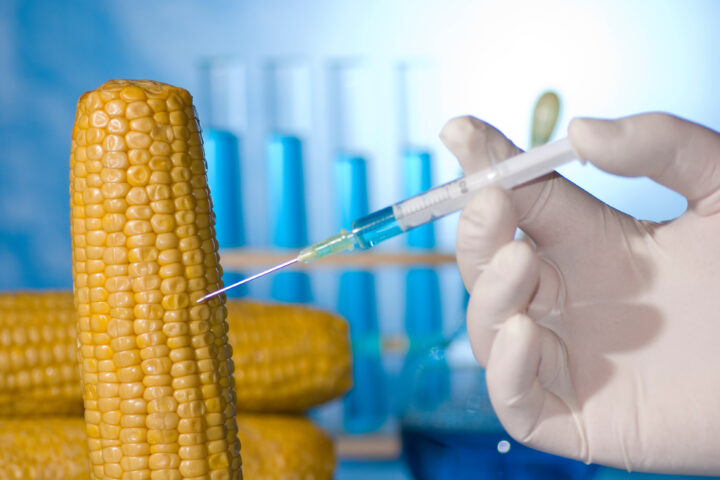
Enabling what is inevitable
The opponents of progress are once again in the starting blocks. In mid-April, critics of genetic engineering announced a popular initiative aimed at making any relaxation of the existing moratorium on genetic engineering impossible. The exact wording is not yet known, but the statements made by the exponents make it clear that the total blockade on modern plant breeding is to be enshrined in the constitution.
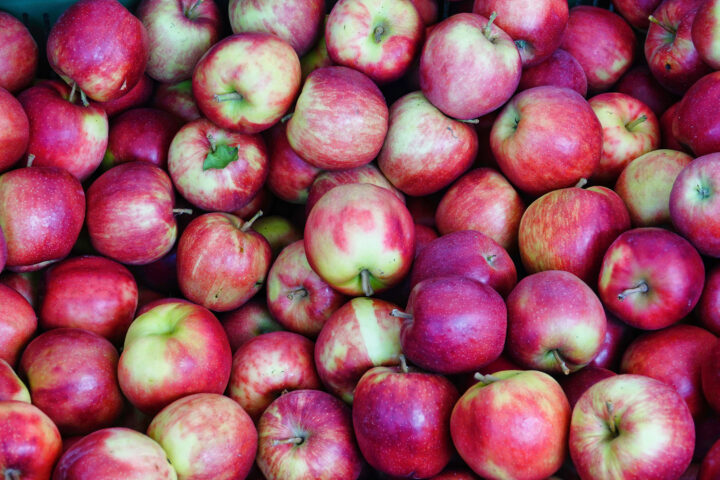
Where the focus lies in apple breeding
The new head of Agroscope's fruit breeding research group is Andrea Patocchi. In an interview with the trade journal Obst + Wein, he explains where the focus of apple breeding lies today.
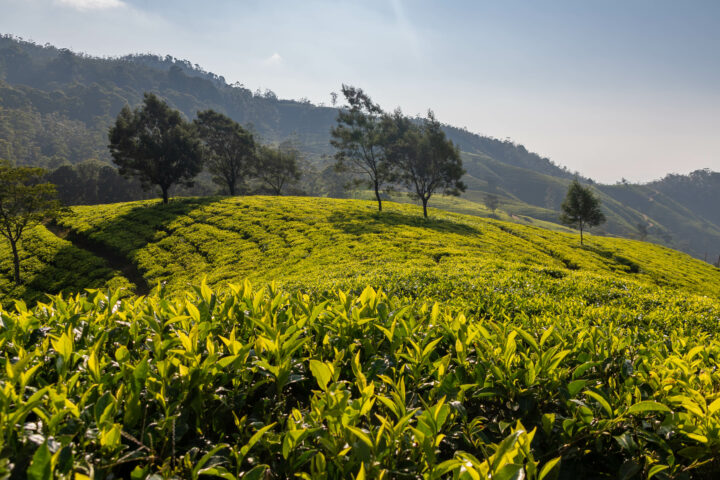
Chinese robot picks tea
There is a shortage of tea pickers in China. A robot developed by a researcher is set to remedy the situation and take over the work in future. Thanks to artificial intelligence, the machine can even recognise the shoots of the tea plant. The first harvesting robots are also already being developed in Switzerland.
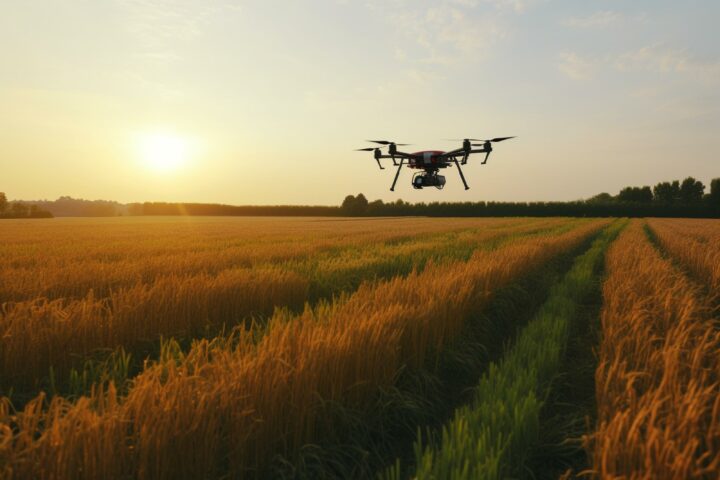
Why AI has not yet had its breakthrough in agriculture
Artificial intelligence is gaining ground in many areas. However, the new technology does not yet seem to have really arrived in agriculture. The reason for this is nature, which is throwing a spanner in the works of AI. Nevertheless, the opportunities that AI could offer agriculture are immense.
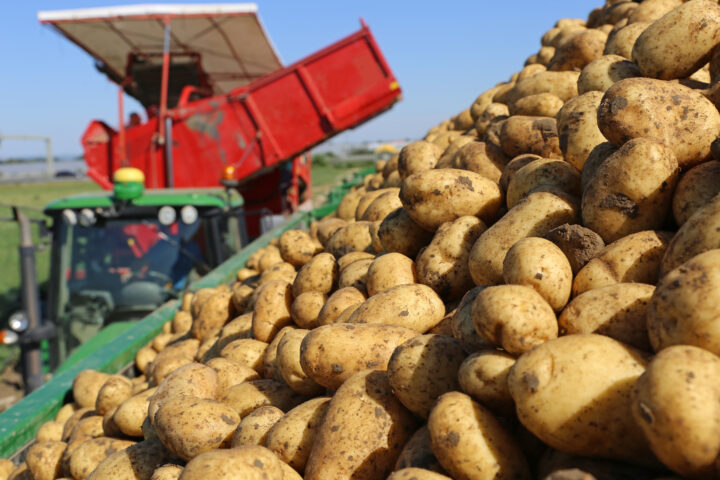
Potato farmers want robust varieties
As the use of crop protection has been massively reduced, the potato industry now wants to focus on more robust varieties. The industry has even concluded a target agreement with the federal government. This is ambitious: By 2040, robust varieties are to grow on 80% of potato cultivation areas.
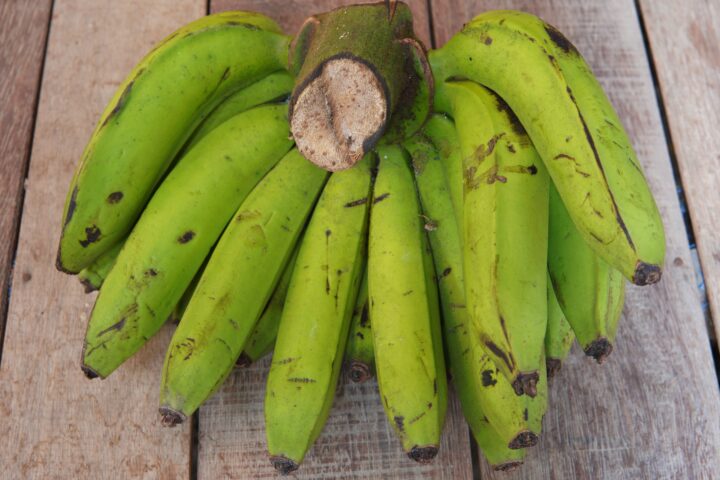
How genetic engineering is saving the Cavendish banana
The most popular banana variety - the so-called Cavendish banana - could soon disappear due to a persistent fungus. Australian researchers have developed a solution based on genetic engineering.
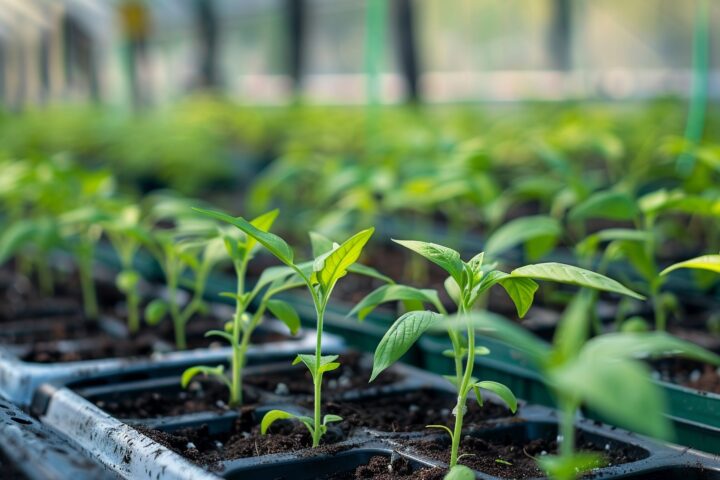
Nutrition: Does the future belong to the green gene scissors?
New plant varieties contribute to security of supply. The new breeding methods known as "gene scissors", such as Crispr, have the potential to revolutionise agriculture and nutrition.
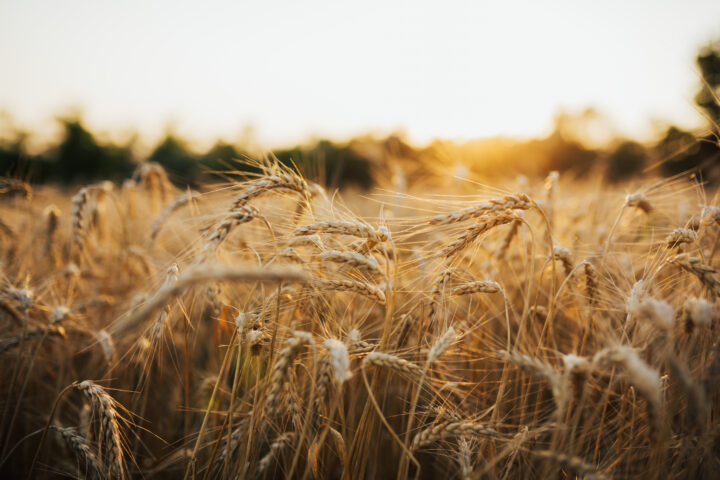
Will this field trial revolutionise barley production?
Switzerland's first field trial using plants from new breeding technologies will start this spring in Zurich. Specifically, the aim is to breed a spring barley that produces more grains per ear. If the trial works, the technology is likely to be of great interest to Swiss agriculture.
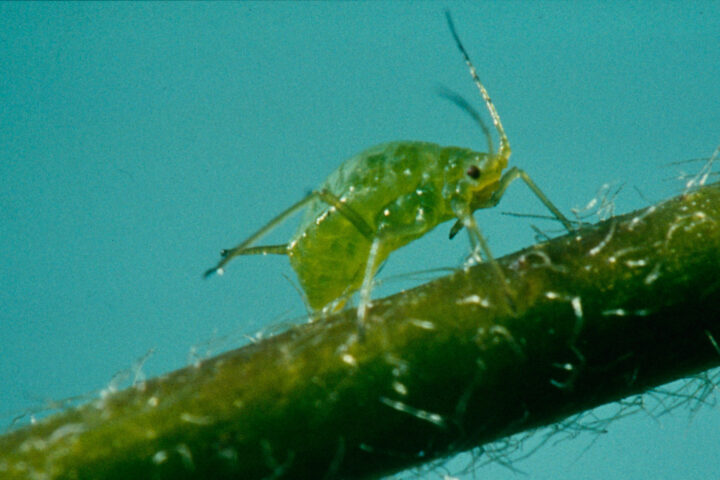
Crop protection products are in short supply - and soon the first vegetable varieties too
Vegetable producers are currently struggling. The reason for this is the lack of crop protection products . It is becoming increasingly difficult to bring saleable products onto the market. Some farmers are even reaching their limits to such an extent that they have had to stop growing certain vegetable varieties.
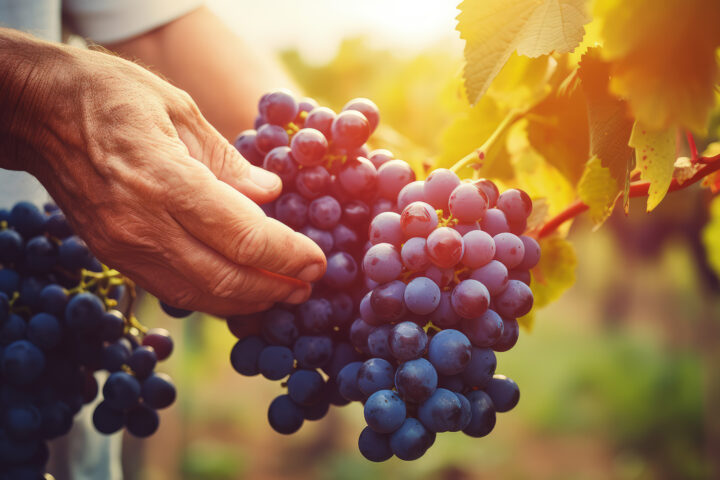
Pests increasingly threaten fruit, berry and grape harvests
Fruit, berry and wine growing is increasingly threatened by pests such as the Japanese beetle, the spotted wing drosophila and the Mediterranean fruit fly. Producers are sounding the alarm – but there is a lack of pesticides that can put an end to the pests.
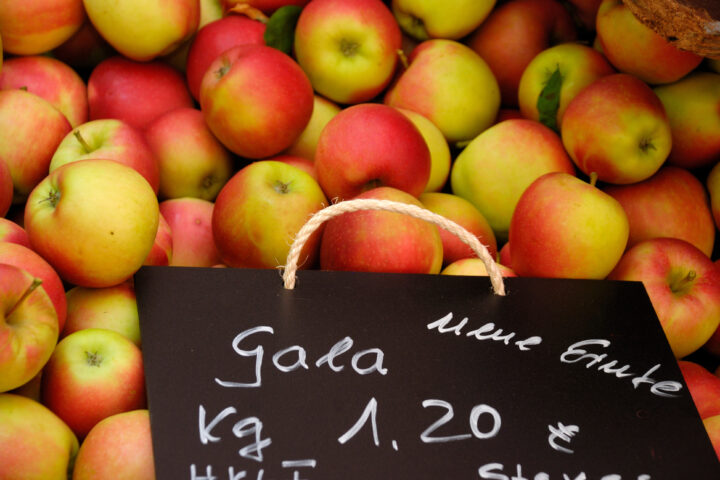
Organic farmer calls for genome editing for fruit growing
The high number of plant protection treatments is a major challenge for organic farmers. One of them is apple grower Marco Messerli from Kirchdorf BE. He has had to treat susceptible apple varieties with organic pesticides a total of 48 times. Too much, he thinks, and is now calling for the authorisation of new breeding methods. Experts agree with him.

Regional products are more in demand than ever
The demand for regional products could hardly be greater. This is shown by a new study by the Zurich School of Business. Consumers even consider regional products to be significantly more sustainable than organic or premium products. To keep up with this trend, it is therefore all the more important to promote modern breeding techniques and plant protection products.

EU decision in favour of new breeding methods with stumbling blocks
On 7 February, the EU Parliament voted in favour of approving the new genomic breeding methods in the EU. MEPs voted in favour of a corresponding proposal by 307 votes to 263 with 41 abstentions. Further deliberations will now follow.
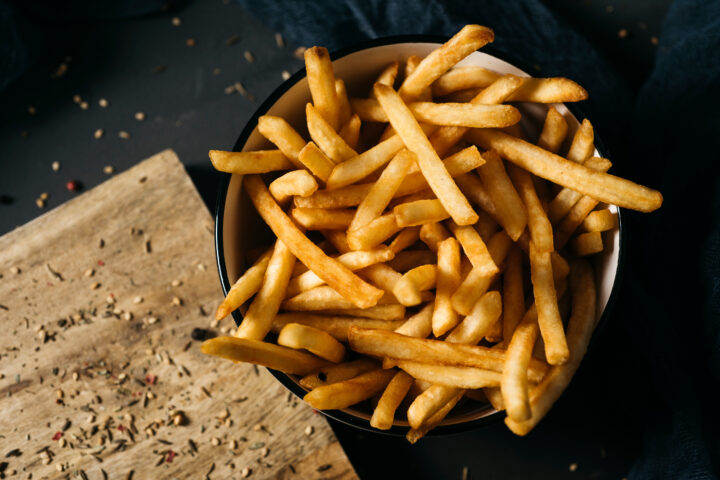
French fries are becoming scarce
A shortage of seed potatoes is looming in 2024. If there is a shortage of seed potatoes, the popular carbohydrate suppliers cannot be harvested. And because seed potatoes are in short supply throughout Europe, importing them will also be difficult. According to Swisspatat, varieties of French fries are particularly affected.
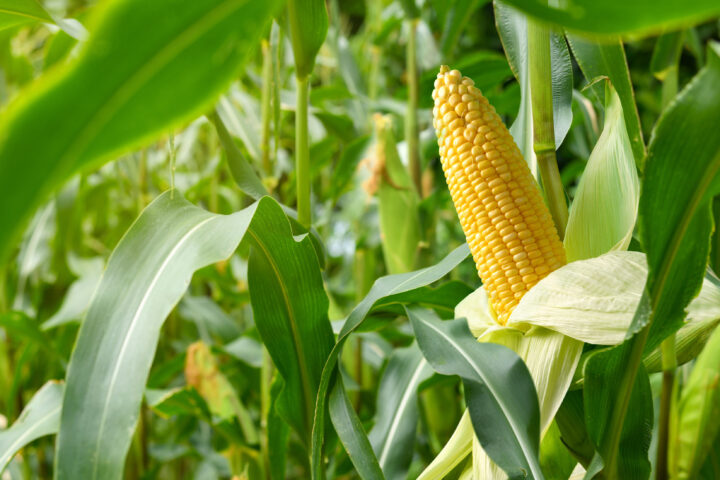
Agriculture between science and marketing
ORF's Eco Special examines the question of how plant breeding and genetic engineering work. The programme speaks plainly: All breeding is an intervention in the genes. Whether maize or carrots, ever since humans have been breeding, they have been changing the DNA of their seeds in order to produce plants with ever better properties. And products advertised as "GMO-free" have long since contained genetic engineering - even in organic products.
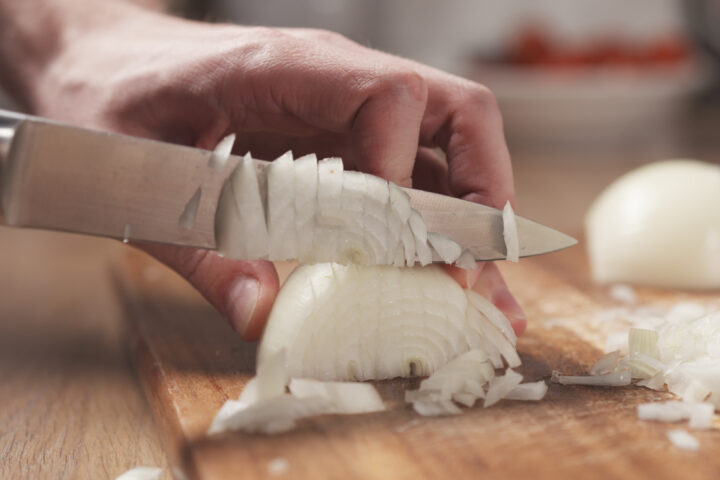
Cutting onions without crying
Onions are now available from Swiss retailers that should no longer cause tears when cut. The onions marketed under the name "Sunions" are significantly milder than the previously known varieties. It has taken over thirty years to achieve this using traditional breeding methods.
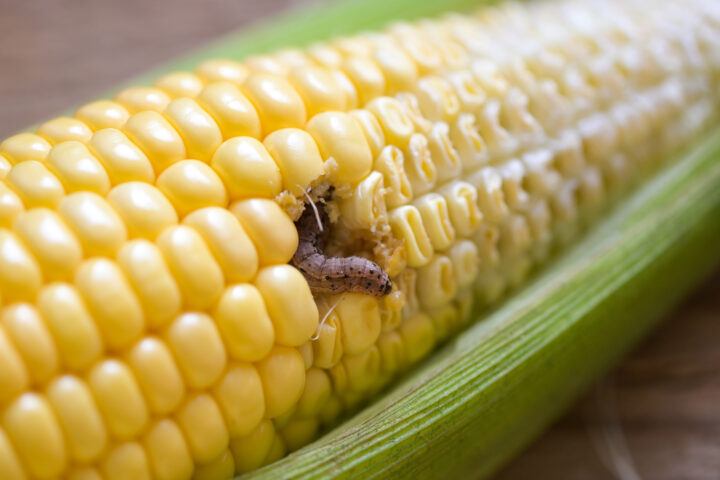
Anxious sweat as a cry for help
Plants live dangerously. They are surrounded by predators. But they are not completely at their mercy. Decades of research have shown this. For example, plants emit odours when attacked. This realisation could lead to new strategies for plant protection. However, it is still uncertain whether this will ever lead to a widely used product.
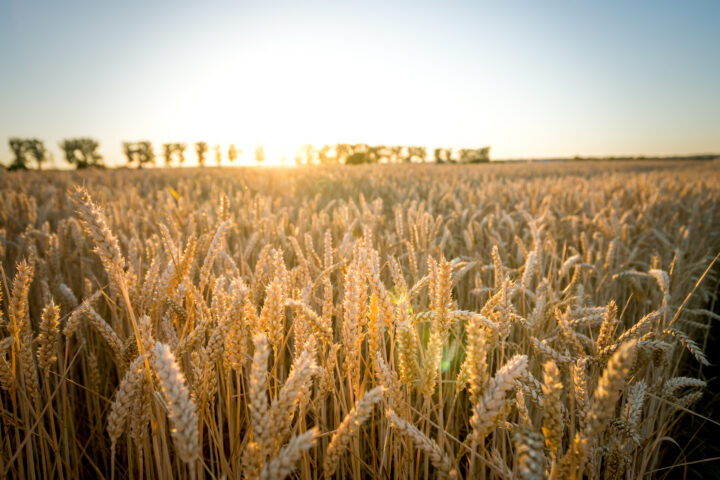
Public funds for avoidable crop failures: neither sustainable nor resource-efficient
The reduced use of plant protection products is causing much smaller wheat and rapeseed harvests. A study carried out by Swiss Agricultural Research reveals that such crop failures can only be offset by state subsidies. This is neither sustainable nor resource-efficient.
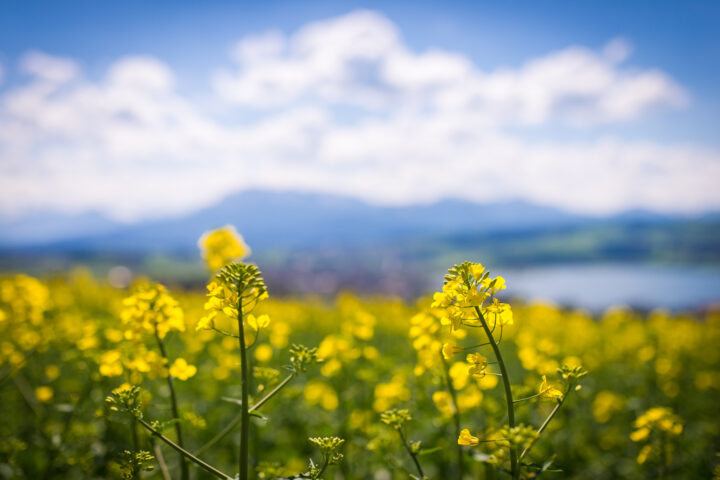
Swiss Rapeseed Oil Production at Risk
Swiss-produced rapeseed oil is in high demand, serving as a vital local alternative to imported palm oil for the country's food manufacturers.
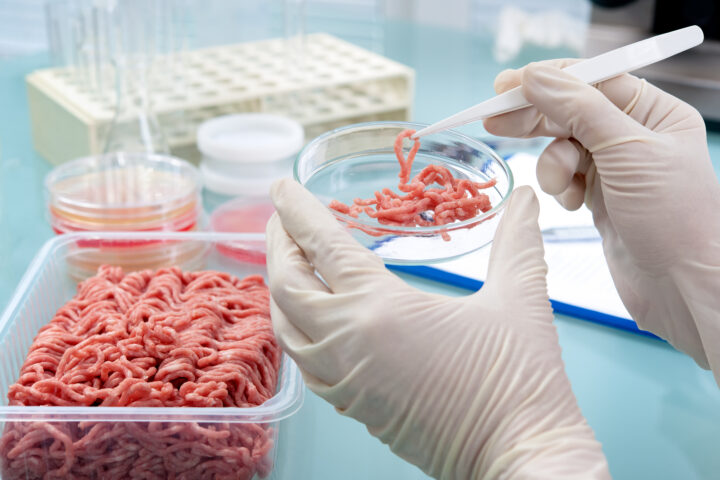
Lab meat soon in Swiss shops?
Research into alternatives to animal meat is in full swing. Cultured meat could be a resource-efficient source of protein in the future.
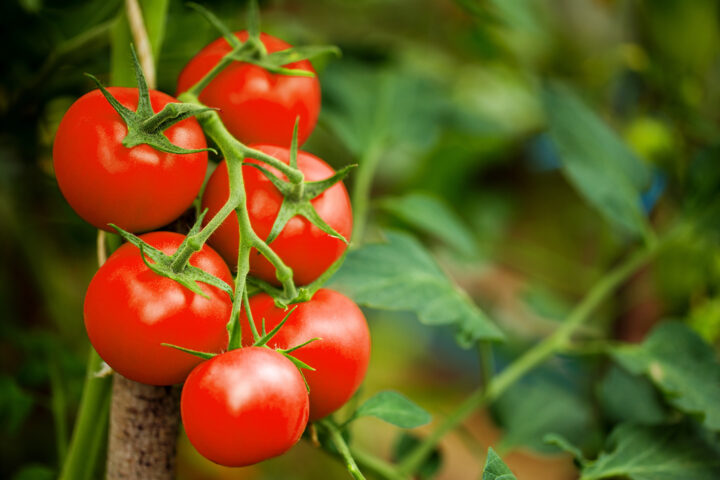
Science demonstrates the concrete benefits of new breeding methods
The Swiss Academy of Sciences (SCNAT) recognizes the significant opportunities offered by new breeding methods. In a new dossier, the Academy presents five examples of crops cultivated using genome editing, which have high potential for Swiss agriculture. This publication emphasizes the scientific consensus on the use of genetic scissors. The new breeding methods offer numerous advantages for the environment and agriculture.
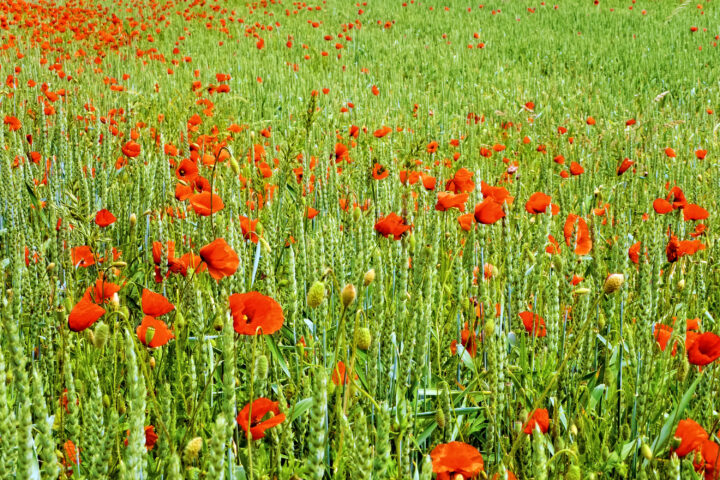
EU paves the way for gene editing
The European Union aims to regulate plants bred using genome editing techniques in the same way as conventional breeding methods. The European Commission plans to present a corresponding proposal for regulating new breeding technologies in early July. This move represents a significant step towards a more productive and sustainable agriculture in the EU. Switzerland should also re-evaluate genetically edited plants to avoid falling behind.
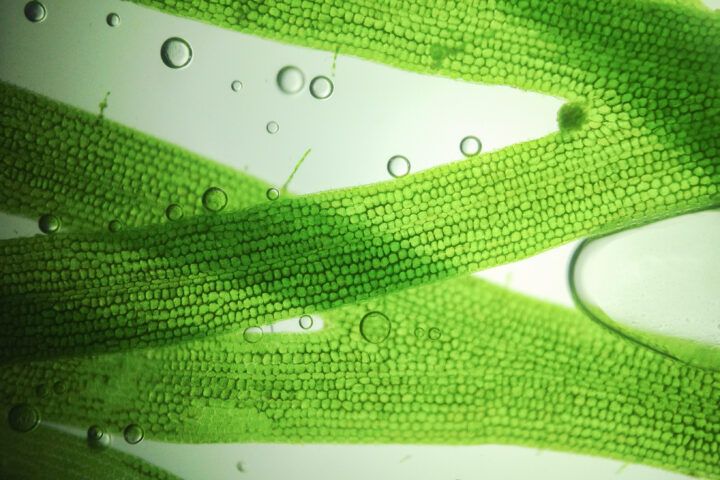
New Breeding Techniques: German Federal Minister of Research Calls for Green Light
The Federal Minister of Research has reiterated her demand to facilitate the application of new breeding techniques in Europe. As an example, she mentions the gene-editing tool CRISPR/Cas.
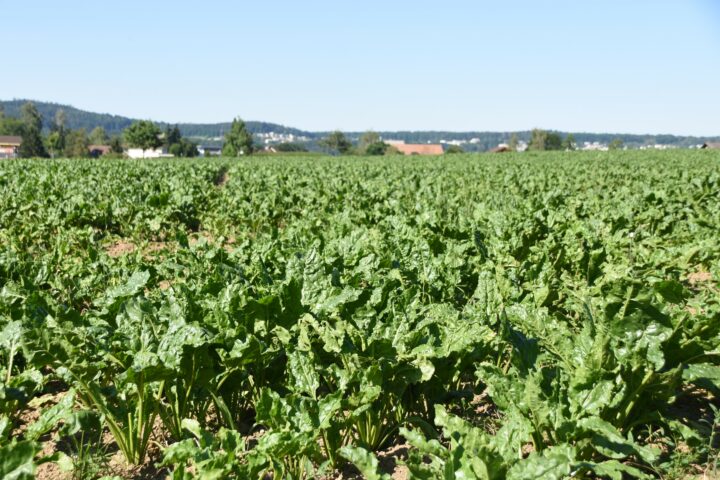
At Bio Suisse, appearances and reality diverge
Over the past decades, the umbrella organisation Bio Suisse has developed into an organisation with almost one hundred employees. In order to be able to achieve the quantities demanded by the retail trade and the high, also visual quality of conventional cultivation, Bio Suisse cannot avoid spraying areas with insecticides.
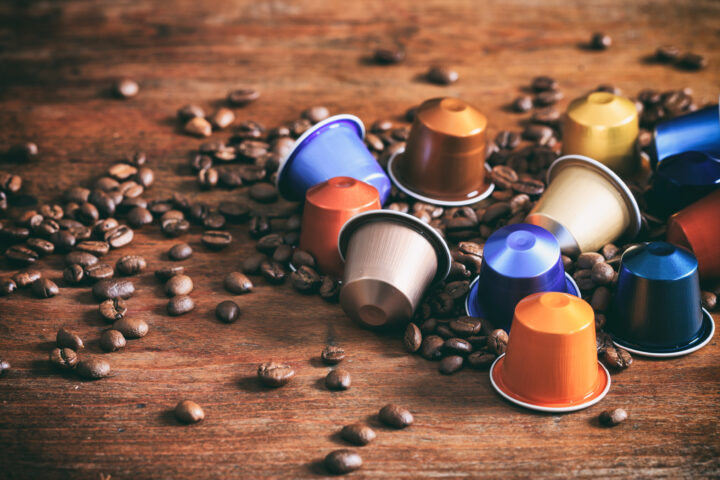
The EU's Misguided Ban on Coffee Capsules
The EU is contemplating a ban on coffee capsules, with a draft legislation already put forward by the EU Commission. Should this law pass, only compostable coffee capsules would be permitted.

Bio Suisse rejects modern breeding methods
At their meeting in April 2023, the delegates of Bio Suisse rejected the use of new breeding methods in organic farming. With this decision, the organic association closes itself off from the possibility of becoming more productive and sustainable through modern precision breeding, such as the incorporation of disease tolerance using the CRISPR/Cas gene scissors. As reported by the "Tages-Anzeiger," the decision of the delegates was clear, and there was no real substantive debate on the topic.
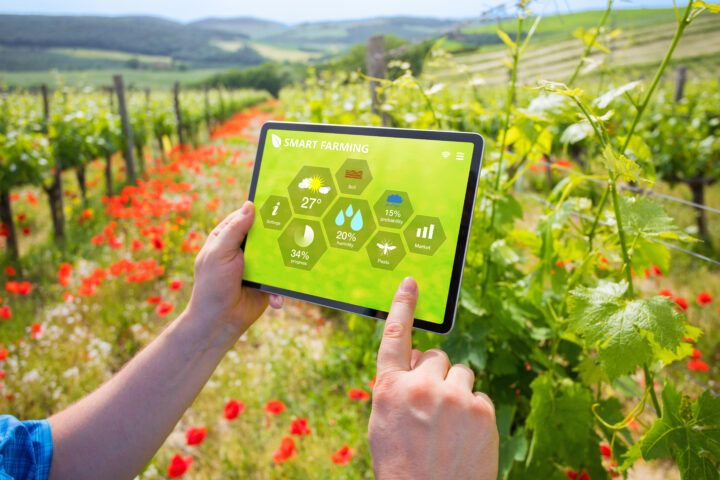
From Data to Harvests - How Digitization is Improving Agriculture
Digitalization is making its way into agriculture. At the Swiss-Food Talk on April 25, 2023, three experts from the agricultural machinery industry, vegetable production, and agricultural media discussed how digitization is changing food production. The consensus is that we are in the transition from industrial to smart agriculture, where data and algorithms as support allow precise interventions and serve sustainability.

Milk from the laboratory - sustainability is decisive
Milk from the lab is on the rise. Nestlé sells artificial milk in the USA, and a Swiss entrepreneur produces cheese in the laboratory. This is reported by the SonntagsZeitung. According to a survey by the medium, most consumers are willing to try milk alternatives produced using genetic engineering. The differences in taste compared to conventional milk are said to be minimal. However, the sustainability of the products is crucial, which includes resource efficiency and price.

«How can our agriculture and food system become fit for the new normal?»
It is time to say goodbye to millimeter agricultural policy, says Liebegg director Hansruedi Häfliger in view of the global multi-crisis. Farming families should be given back the necessary room for maneuver so that the agriculture and food economy becomes more resilient.
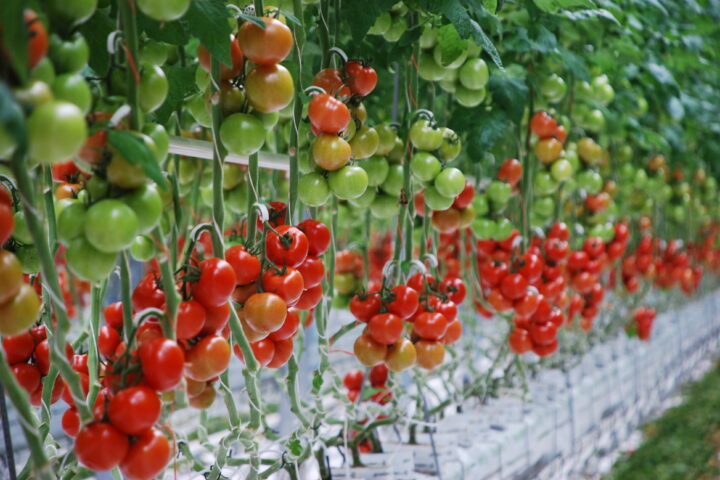
On the way to the optimal tomato
Whether as juice on a plane, pureed on a pizza or sliced on a sandwich, tomatoes are on everyone's lips. How the tomato variety comes about and how the tomato of the future tastes is shown in an article from the German "Lebensmittelmagazin".
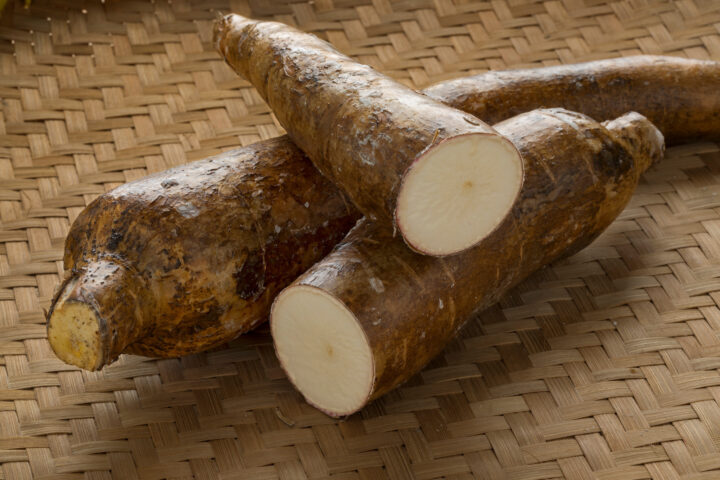
Industry-funded research increases the yields of important crop plants
Grains such as rice, wheat, and corn provide the majority of the calories consumed across the globe. Crop plants such as tef or cassava, on the other hand, have previously been rather overlooked. However, research progress has now made cultivating them a more attractive prospect. This is particularly important given climate change.
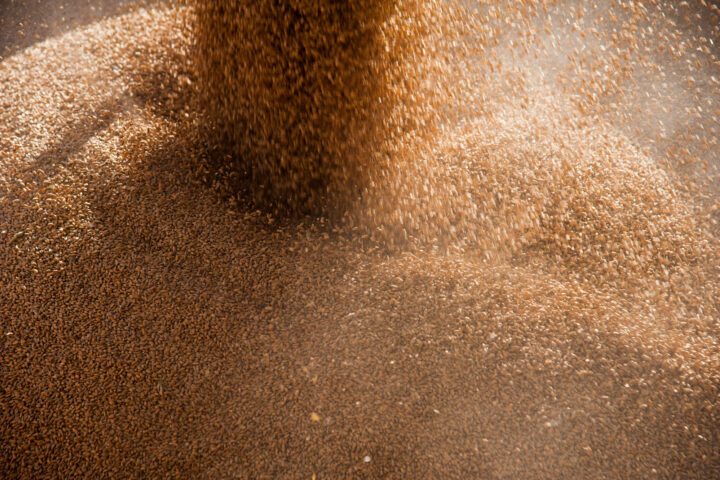
Supply Reliability Increasing in Importance
The Swiss are satisfied with the state of domestic agriculture. However, supply reliability has become more important. These are the findings of a representative survey that the Federal Office for Agriculture published with its Agricultural Report 2022.

40% drop in yields: Does this spell the end for turnip lanterns?
The traditional Räbeliechtli (turnip lantern) parades are taking place again in November. However, according to the “Aargauer Zeitung”, farmers are finding it increasingly difficult to produce the turnips. As key plant protection products are being taken off the market, the turnips are less and less well protected against pests and diseases.
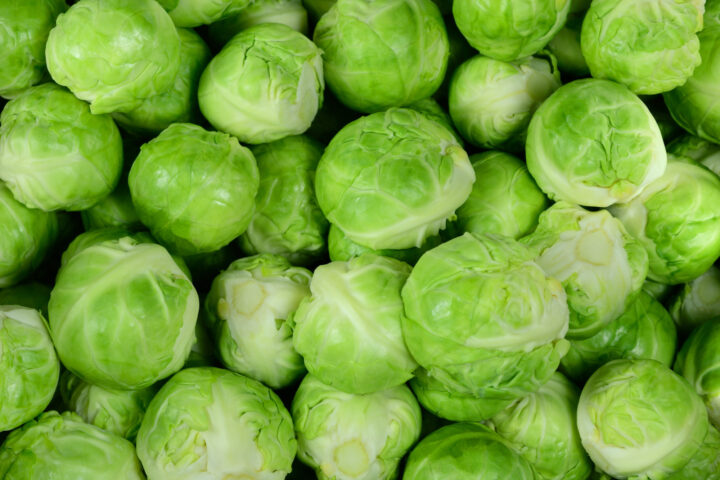
Lack of plant protection resulting in declining cultivation of Brussels sprouts
It is becoming increasingly difficult to cultivate Brussels sprouts in Switzerland. The areas in which they are cultivated have been shrinking for several years. The reason for this is the steadily declining number of approved plant protection products.
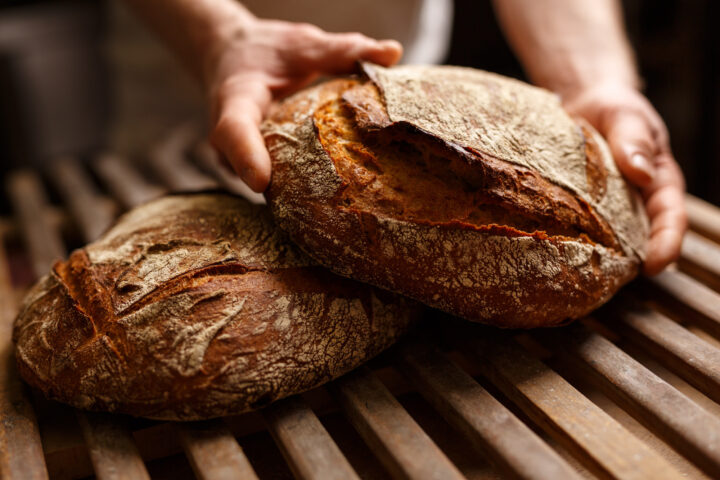
Could bread soon be unrecognizable?
The history of bread is closely linked to the cultivation of different varieties of wheat. Human optimization of bread-making wheat has made a huge contribution to the development of civilization as a whole. However, in order to continue the development of wheat cultivation and feed more people, new technologies are required, such as green biotechnology. But significant obstacles remain.
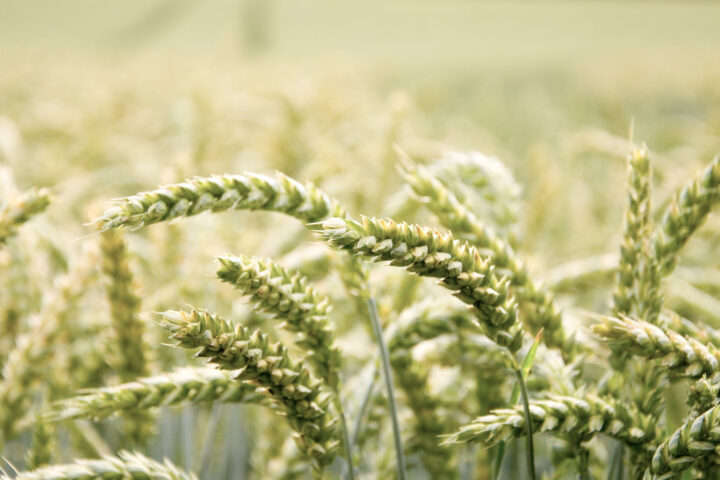
EU Agriculture Ministers Call for Greater Openness to “Gene Scissors”
The majority of agriculture ministers in the European Union see new plant breeding technologies as the key to strengthening food security. They are therefore calling for a reassessment of the rules governing the approval of new genetic engineering techniques. These new genetic engineering methods may also bring fresh impetus to attempts to combat food waste.
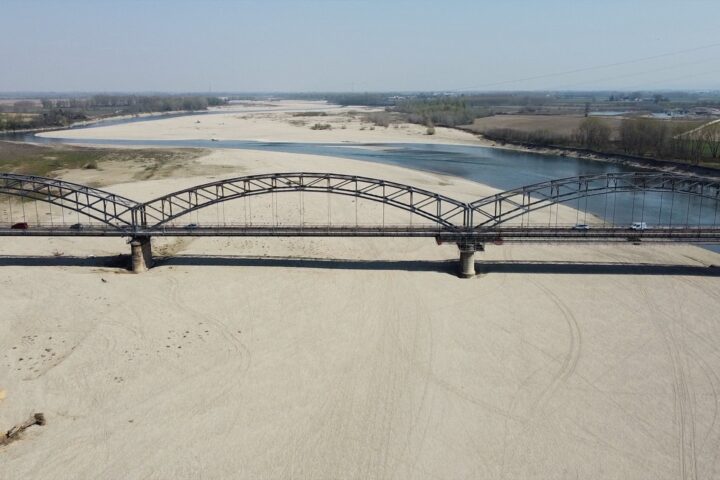
Little water and salty soil
The Po Valley is one of the most important agricultural areas in Italy. But the Po currently lacks water. The fields have dried up. The region must expect regular water shortages in the future. In addition, the soil is becoming more and more salty. A glimmer of hope comes from Southeast Asia, where salt-resistant rice varieties are braving the saline soils.
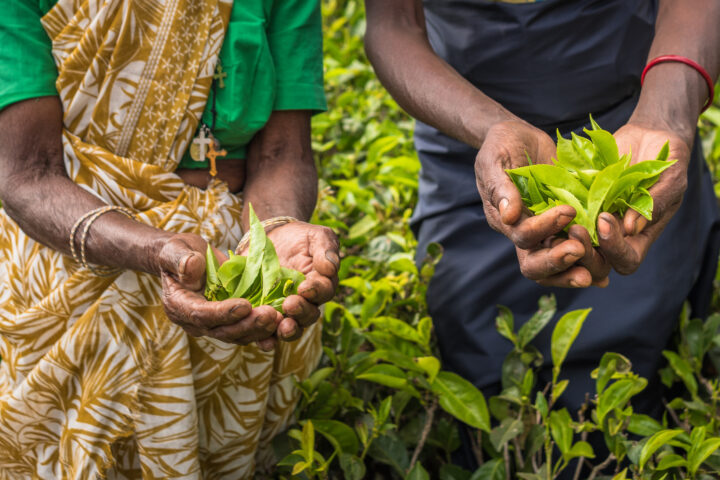
Sri Lanka: Pesticide ban with disastrous consequences
As Sri Lanka experiences its worst economic crisis in 70 years, the population is protesting against the country’s political leaders and the disastrous situation surrounding the supply of basic necessities. One significant contributing factor to this predicament is last year’s decision by the government to ban pesticides and synthetic fertilizers, which resulted in poor harvests and soaring food prices.
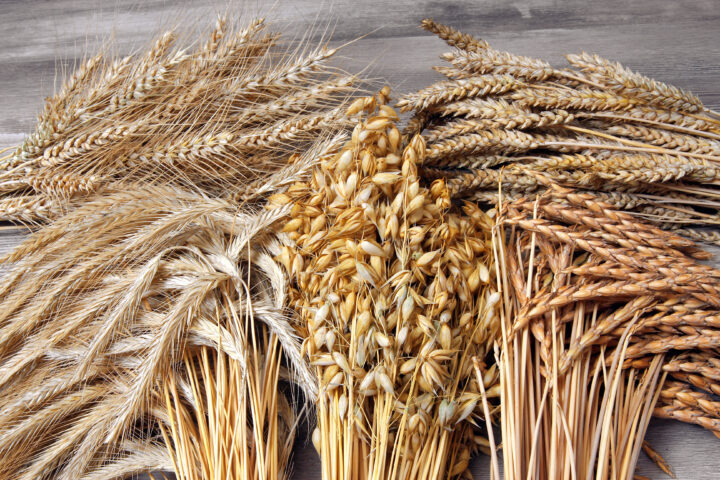
A war over food
400 million people worldwide are supplied with grain from Ukraine, many of them in North Africa and the Middle East. The UN's Food and Agriculture Organization (FAO) is sounding the alarm.
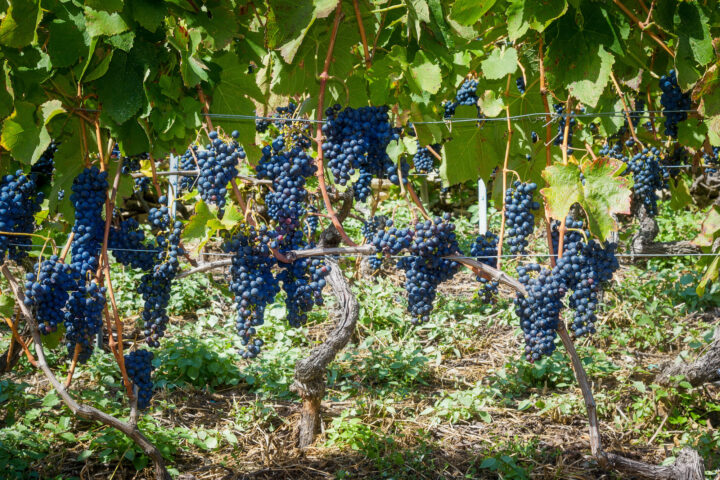
Viticulture: Fungus-resistant grape (FRG) varieties need plant protection too
The wet summer of 2021 caused extensive damage to Switzerland’s vineyards. Fungal diseases such as downy mildew, in particular, took their toll on the grapevines. A survey conducted by the cantonal offices for viticulture in German-speaking Switzerland shows that FRG varieties are also affected by downy mildew and require plant protection products to protect the crop.
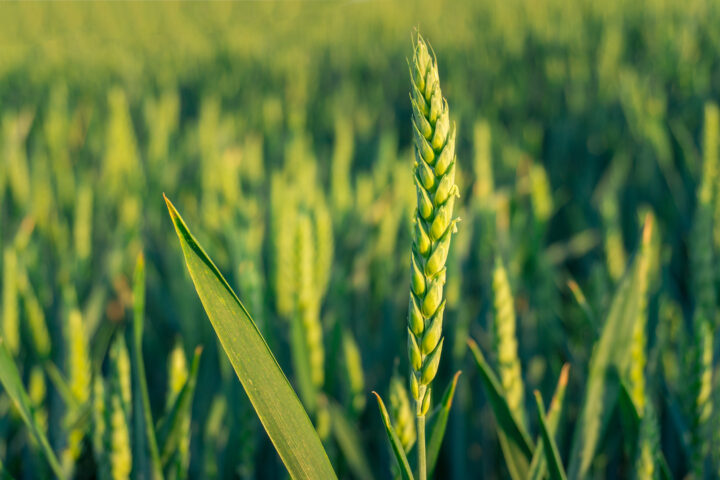
How plant breeding innovations are helping to feed a hungry world
As of 2019, nearly 26% of the globe’s population experienced hunger or did not have regular access to safe and nutritious food. With increasing global populations and a changing climate, this number is estimated to surpass 840 million by 2030.
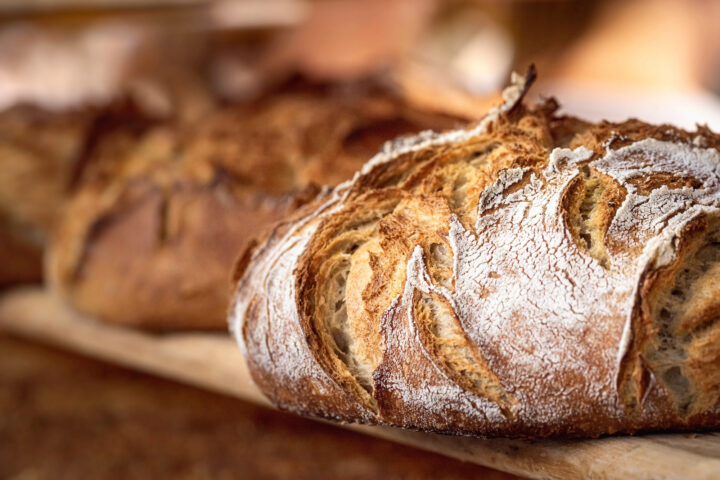
Gene Editing for Stronger Supply Security in the UK
Russia’s invasion of Ukraine has led to a scarcity of wheat and big price increases for the staple on agricultural commodity markets. The United Kingdom wants to strengthen its domestic supply security by relying on more resistant crops. With this aim in mind, plans call for passing a new law that would allow cultivation of gene-edited plants. Agricultural productivity is once again becoming increasingly important in European countries. Switzerland also needs to produce more.
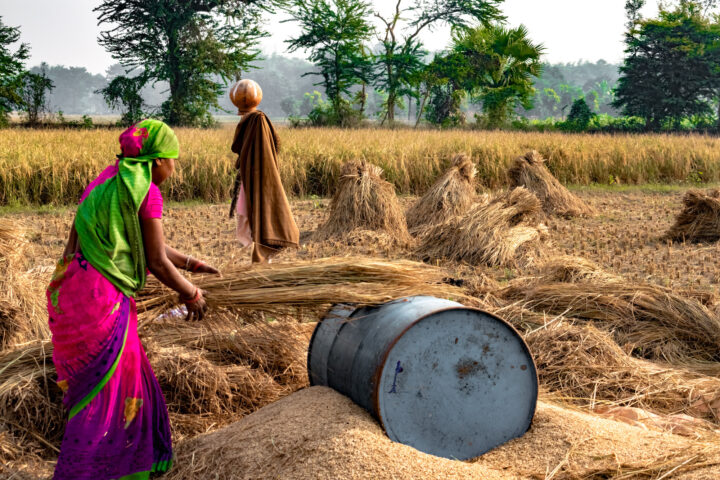
Wheat production: Heat wave in India exacerbates global supply situation
South Asia is currently being hit by an exceptional heat wave. This is threatening the harvests of many farmers. India has therefore imposed an export ban on wheat. The country is the second largest producer of wheat in the world. This is likely to exacerbate the already tense situation on the agricultural markets caused by the war in Ukraine.
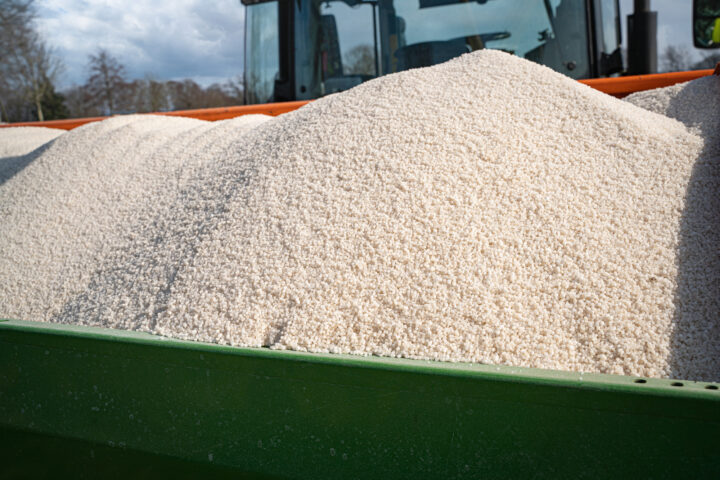
Artificial fertilizer is becoming scarce
The Russian war on Ukraine is having a devastating impact on global agriculture. The two countries produce large quantities of wheat for the world market. Russia is also one of the most important producers of fertilizers. These are now threatening to become scarce.

Revolution on the farm
The CRISPR/Cas method will revolutionise parts of plant breeding. The technology is urgently needed to address the challenges facing agriculture in this century and threatening our security of supply.
Content in German

«We’re already in the middle of a grain supply crisis»
Werner Baumann has led the German agrochemical and pharmaceutical company Bayer since 2016. In an interview with the "NZZ", he explains what the Ukraine war means for his company and the food supply.
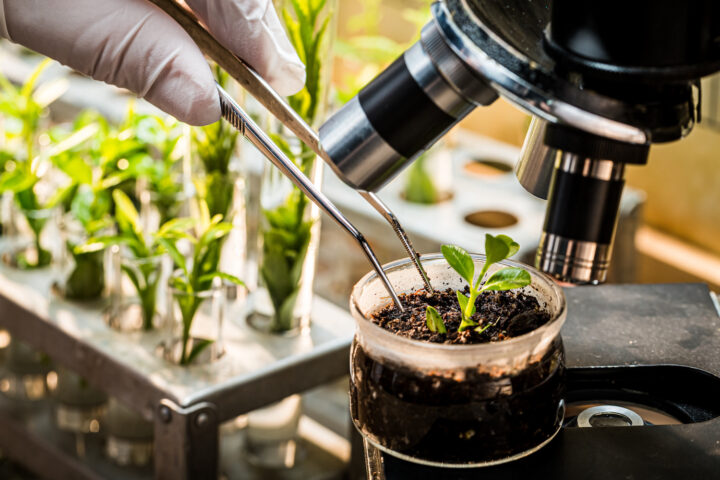
The United Kingdom paves the way for the cultivation of genome-edited plants
The British Parliament has passed a law that facilitates the cultivation of genome-edited plants.
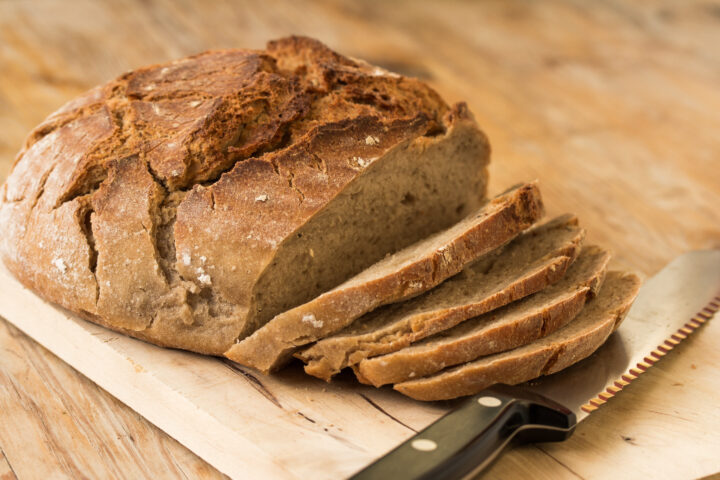
Switzerland needs to import more bread grain
The industry organisation Swiss Granum has applied to the Federal Government for an increase in the import quota for bread grain. Last year's domestic crop yields and stocks are not sufficient to meet this year's demand.


